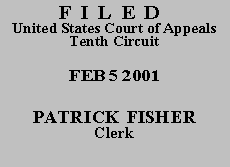

| UNITED STATES OF AMERICA,
Plaintiff-Appellee, v. ISAIAS SOLIS, Defendant-Appellant. |
|
Isaias Solis was indicted on seven drug-related counts, and he pleaded guilty to one count of possession with intent to distribute cocaine base in exchange for the government's dismissing the remaining six counts. In his plea agreement, he agreed to "waive[] any right to appeal or collaterally attack any matter in connection with this prosecution and sentence." R. Suppl. Vol. 1, Plea Agreement at 2. He was sentenced, inter alia, to 135 months' imprisonment. This court dismissed his direct appeal on the basis that "the record indicates, and Solis concedes, that he knowingly and voluntarily . . . waived his statutory right to appeal his sentence." United States v. Solis, No. 98-3345, 1999 WL 492668, at *1 (10th Cir. July 13, 1999) (unpublished). In March 2000, Solis filed this motion pursuant to 28 U.S.C. § 2255 challenging his sentence on the basis that his counsel was constitutionally ineffective for failing to explain the consequences of his waiver and in his performance at sentencing. The district court denied the motion on the grounds that Solis knowingly and voluntarily waived the right to collaterally attack his sentence and that, in any event, Solis could not establish that his counsel provided ineffective assistance. Solis timely filed a notice of appeal.
In his application for a certificate of appealability pursuant to 28 U.S.C. § 2253(c), Solis raised six issues: (1) whether counsel was ineffective in failing to advise him of the consequences of the waiver provision in his plea agreement and the waiver provision therefore should not be enforced; (2) whether counsel was ineffective at sentencing for failing to challenge a prior conviction used to increase his criminal history; (3) whether counsel was ineffective for failing to move for a downward departure because his prior convictions over-represented his criminal history; (4) whether counsel was ineffective for failing to move for a downward departure because the government engaged in sentencing entrapment; (5) whether counsel was ineffective for failing to object to the double-counting of criminal history points; and (6) whether the district court erred in failing to conduct an evidentiary hearing. This court previously granted a certificate of appealability on the first and third issues.
Solis is essentially claiming two layers of constitutionally ineffective assistance of counsel. To succeed on a claim of ineffective assistance of counsel, Solis must demonstrate that his counsel's performance was deficient, and that there is a reasonable probability that his counsel's performance prejudiced him. Walker v. Gibson, 228 F.3d 1217, 1231 (10th Cir. 2000). The first layer of alleged ineffective assistance challenges his counsel's performance in negotiating his plea agreement, in particular, counsel's failure to advise him of the consequences of the waiver provision in the plea agreement. The claimed prejudice from this allegedly deficient performance is the waiver of his second layer of ineffective counsel claims--those occurring at sentencing. The waiver in the plea agreement does not bar his claim of ineffective assistance in negotiating the plea. United States v. Cockerham, No. 98-7189, slip op. at 20, 2001 WL 43016, at *7 (10th Cir. Jan. 18, 2001). However, for this claim to succeed, he must show prejudice, which in this situation, requires that he show prejudice from his counsel's performance at sentencing.
We need not address whether counsel's performance, either during plea negotiations or at sentencing, was deficient if Solis cannot demonstrate prejudice, Walker, 228 F.3d at 1231, and we conclude he cannot. The district court determined that none of the actions Solis contends his counsel should have undertaken at sentencing would have been successful in reducing his sentence. On consideration of the record and Solis' arguments on appeal, we agree with the court's analysis. Therefore, for substantially the same reasons as stated by the district court in its analysis of Solis' claims on the merits, we conclude he has not shown that his counsel was ineffective.
We DENY Solis' application for a certificate of appealability on issues two, four, five and six, and AFFIRM the judgment of the district court. The mandate shall issue forthwith.
Entered for the Court
Circuit Judge
*. This order and judgment is not binding precedent, except under the doctrines of law of the case, res judicata, and collateral estoppel. The court generally disfavors the citation of orders and judgments; nevertheless, an order and judgment may be cited under the terms and conditions of 10th Cir. R. 36.3.